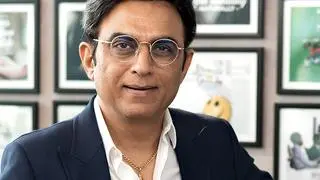It would be tempting to see Ratan Tata’s elevation in 1991 and his subsequent success in managing a disparate conglomerate of businesses as something that was preordained. Nothing could be farther from truth. Just how much farther can be gauged from an alternative scenario that is a classic textbook case of succession in a traditional family-driven business. This is how a succession would typically play out. You are born into the family of a very successful entrepreneur. He presides over a vast industrial conglomerate.
As the eldest child, or better still, as the only child, you are the heir-apparent and all set to formally take over, whenever the old man says it is time for him to quit. What would your career path be?
It would typically happen this way: You are inducted into the most profitable and, if possible, the most high-profile company in the Group. You are most likely to start from somewhere near the bottom of the totem pole.
You would be fast-tracked in a few short years, to the top and within sniffing distance of the very zenith.
Typical succession
Since the company you were pitch-forked into was, to begin with, a profitable one, chances are that it would have continued to do well, if not better its past performance, in the years since you joined.
In any case, since you were still working your way up the organisation you didn’t really have the opportunity, even if you had the natural genius, for messing things up, to have damaged its prospects in any significant way. In no time at all, the success of the organisation gets attributed to your own managerial excellence.
With some deft management of your public image, business schools could be lining up to write case studies on your management style and newspapers would be feting you with Entrepreneur of the Year awards. You may eventually take the Group to newer heights or run it to ground. But that is another matter.
For Ratan Tata, it has been anything but that. For no other reason but that the House of Tatas, in practically its entire history barring the initial years, never conformed to the archetypal family business when it came to succession.
Consider the evidence. Jamsetji Nusserwanji Tata starts a business empire. On his death, his eldest son takes over. Up to that point, the story pans out as per the script.
Away from script
On the death of the son however, it is the founder’s nephew (Saklatvala), and that too, from the wife’s side, who takes over. On the passing away of the nephew, the mantle falls on another nephew once removed (JRD Tata).
Ratan Tata himself is a successor not as a lineal descendent but as the great-grand nephew of the founder J.N. Tata. There is also, along the way, a tale of adoption involving his father (Naval Tata) that saw the latter become, legally, the grandson of the founder.
To this already heady mix, throw in also the fact that the Group had by now only a tenuous hold on the companies under its control. The public financial institutions had acquired significant stakes in them and could have at a pinch decided the fate of managerial succession, if the Government of the day had so willed. Compounding his difficulty is the fact the incumbent CEOs in some of the blue chip companies under the Tata fold had acquired larger-than-life images of their own. The bottomline is this: For Ratan Tata, therefore, such greatness as there is in his legacy must necessarily be seen as hard-earned and not something conferred on him under a more traditional succession arrangement. This is also evident from the fact he didn’t get to manage any of the marquee names among the Group companies. His initial stints were in companies that were either struggling (consumer electronics firm Nelco) or were doomed to almost certain extinction (Empress Mills).
Transformation
Far from being seen as a man with the Midas touch, there were sniggers that he might be someone cursed with ill-luck and misfortune. He had weathered all that.
What, then, of his legacy? Shareholders in the Tata Group companies would have had little to complain. Their wealth had grown sixty-fold (by market capitalisation) in the 20 years that Ratan Tata had been at the helm — far better than the market as a whole.
He had managed to string together a number of overseas acquisitions across many Group companies that lifted the profile of the Group in the global arena in a manner that should be ranked as unprecedented among enterprises in the emerging market economies. He could justly lay claim to enlarging the technical capability of some of the Group companies, even if they had not quite mastered the new technology. Thus, Tata Motors has been transformed from a manufacturer of buses and trucks into one making cars as well. But Tata Motors is still struggling to evolve as a complete car-maker. The list can go on and on.
In the end, legacy, like history, must be assessed long after the man has ceased to be relevant. For now, chronicling some facets of it that will eventually make or mar that legacy will do.







Comments
Comments have to be in English, and in full sentences. They cannot be abusive or personal. Please abide by our community guidelines for posting your comments.
We have migrated to a new commenting platform. If you are already a registered user of TheHindu Businessline and logged in, you may continue to engage with our articles. If you do not have an account please register and login to post comments. Users can access their older comments by logging into their accounts on Vuukle.